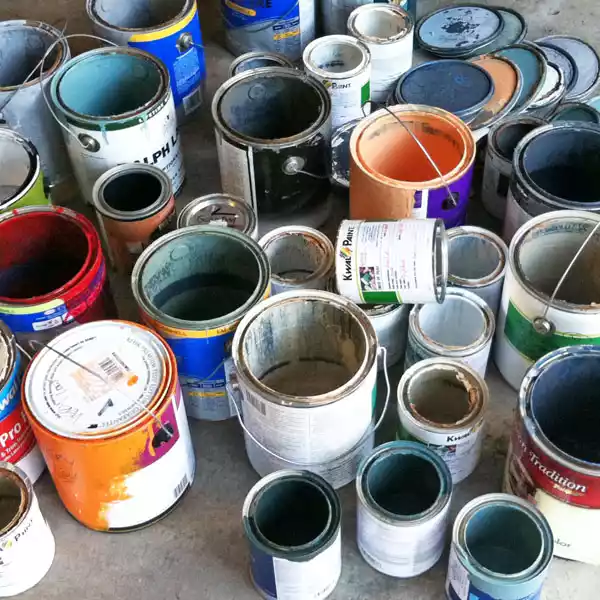Introduction
Spray paint is a handy tool for various projects, from home improvement to artistic endeavours. However, improper storage of unused spray paint cans can lead to safety hazards, reduced paint quality, and environmental concerns. Understanding the best practices for storing these cans ensures they remain effective and safe for future use. This guide delves into the intricacies of spray paint storage, providing detailed information and practical tips to help you maintain your spray paint collection in optimal condition.
Understanding Spray Paint Composition
What is Spray Paint Made Of?
Spray paint consists of a mixture of pigments, solvents, and propellants. The pigments provide color, the solvents dissolve the pigments and resins, and the propellants push the paint out of the can. Understanding these components helps in recognizing why proper storage is crucial.
How Spray Paint Works
When you press the nozzle of a spray paint can, the propellant forces the paint mixture out in a fine mist. This mechanism relies on the pressure inside the can, which can be affected by temperature and storage conditions.
Why Proper Storage is Important

Safety Concerns
Spray paint cans are pressurized and can explode if exposed to high temperatures or punctured. Proper storage minimizes these risks, ensuring a safe environment.
Maintaining Paint Quality
Exposure to extreme temperatures or humidity can degrade the paint quality, leading to clumping, separation, or color changes. Proper storage preserves the paint’s integrity.
Ideal Storage Conditions
Temperature Control
Spray paint should be stored in a cool, dry place. Extreme temperatures can cause the can to burst or the paint to degrade. Aim for a temperature range of 60-80°F (15-27°C).
Humidity Levels
High humidity can cause rusting of the can and affect the paint’s consistency. Store spray paint in a low-humidity environment to prevent these issues.
Choosing the Right Storage Location

Indoor vs. Outdoor Storage
Indoor storage is generally safer and more controlled. If you must store spray paint outdoors, ensure it is in a shaded, weather-protected area.
Garage Storage Tips
Garages are a common storage spot, but they can experience temperature fluctuations. Use insulated cabinets or storage units to maintain a stable environment.
Preparing Spray Paint Cans for Storage
Cleaning the Nozzle
Before storing, clean the nozzle to prevent clogs. Turn the can upside down and spray until only clear gas comes out.
Sealing the Can Properly
Ensure the cap is securely fastened to prevent air from entering the can, which can cause the paint to dry out.
Organizing Your Spray Paint Collection
Labeling and Cataloging
Label each can with the color and purchase date. Keep an inventory to track usage and expiry dates.
Storage Solutions and Racks
Use storage racks or shelves designed for spray paint cans. These keep the cans organized and easily accessible.
Common Mistakes to Avoid
Ignoring Expiry Dates
Spray paint has a shelf life. Using expired paint can result in poor performance and finish.
Storing in Direct Sunlight
Direct sunlight can heat the cans and cause pressure build-up, leading to potential explosions.
Safety Measures for Storing Spray Paint
Fire Safety Precautions
Store spray paint away from heat sources and open flames. Consider using a fireproof cabinet for added safety.
Handling Leaks and Spills
If a can leaks, clean it up immediately using appropriate materials and dispose of the can safely.
Environmental Considerations
Eco-Friendly Storage Options
Opt for storage solutions made from recycled materials. This reduces your environmental footprint.
Disposal of Expired Cans
Do not throw expired cans in the trash. Take them to a hazardous waste disposal facility.
Long-Term Storage Tips
Rotating Stock
Use older cans first to ensure none expire. Regularly check your inventory and rotate stock as needed.
Regular Inspections
Inspect your stored cans periodically for signs of rust, leaks, or damage.
DIY Storage Solutions
Building a Custom Storage Rack
Create a custom rack using wood or metal to fit your specific storage space and needs.
Using Household Items for Storage
Repurpose items like shoe racks or plastic bins for spray paint storage.
Commercial Storage Solutions
Pre-made Storage Units
Purchase storage units specifically designed for spray paint cans. These often come with safety features.
Professional Storage Services
Consider professional storage services if you have a large collection or need specialized storage conditions.
FAQs
How Long Can Spray Paint Be Stored?
Spray paint can typically be stored for 2-3 years if kept in optimal conditions. Always check the manufacturer’s guidelines for specific shelf life information.
Can Spray Paint Freeze?
Yes, spray paint can freeze, which can damage the can and affect the paint quality. Store in a temperature-controlled environment to prevent freezing.
What to Do if a Can is Clogged?
If a nozzle is clogged, soak it in warm water or use a pin to clear the blockage. Avoid using excessive force, which can damage the nozzle.
How to Dispose of Old Spray Paint?
Take old or expired spray paint cans to a hazardous waste disposal facility. Do not puncture or incinerate the cans.
Is it Safe to Store Spray Paint in a Car?
No, the temperature fluctuations in a car can cause the cans to burst. Always store spray paint in a stable, controlled environment.
Conclusion
Proper storage of unused spray paint cans is essential for safety, maintaining paint quality, and environmental responsibility. By following the best practices outlined in this guide, you can ensure your spray paint remains effective and safe for future use. Regular inspections, appropriate storage conditions, and understanding the composition and risks associated with spray paint will help you manage your collection efficiently.
the 5 best purchases i’ve made in my 20’s
Ruth Aquilani is a renowned graffiti artist known for her bold, colorful, and expressive style. She began her career as a street artist in the early 2000s, quickly making a name for herself in the graffiti community with her unique and striking works of art.
